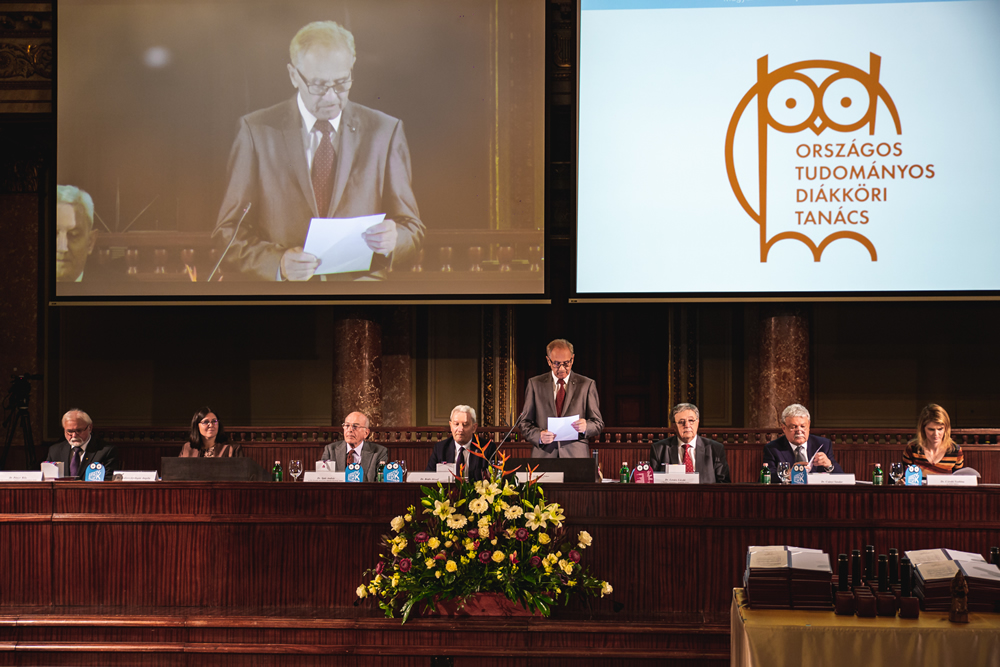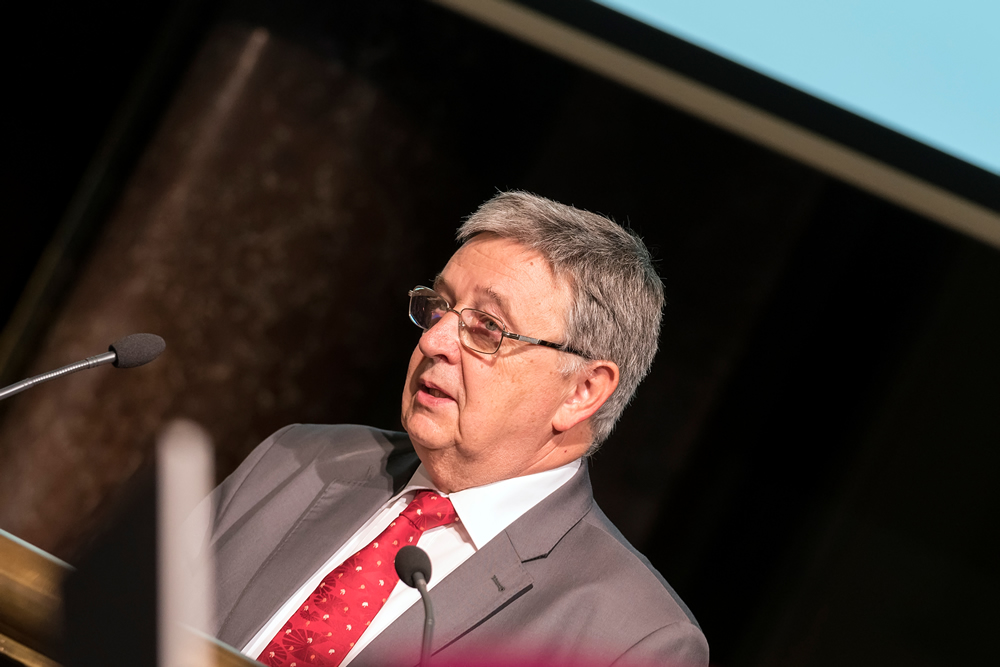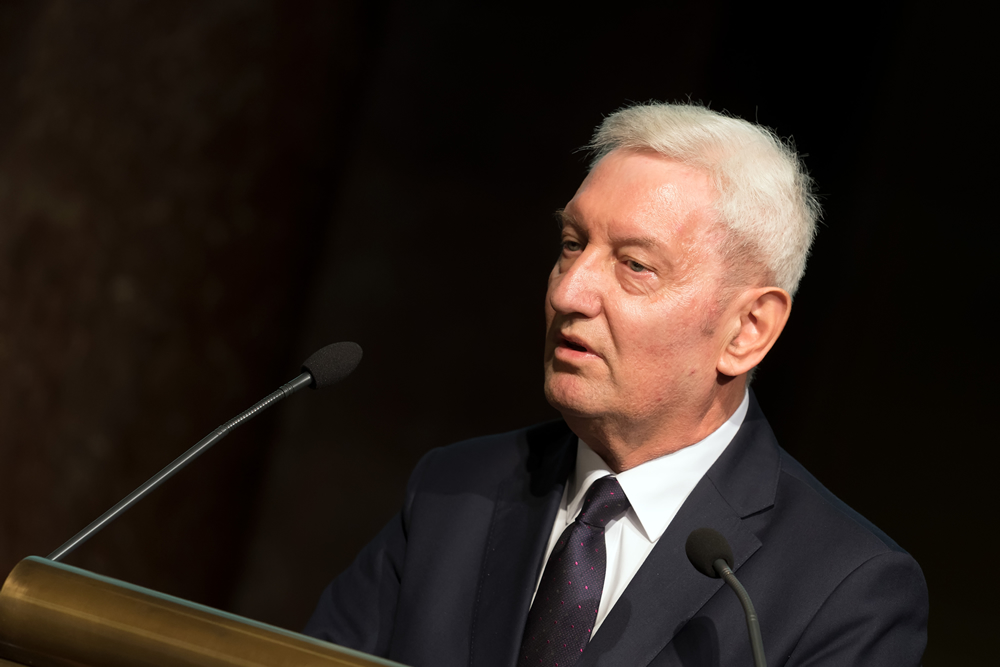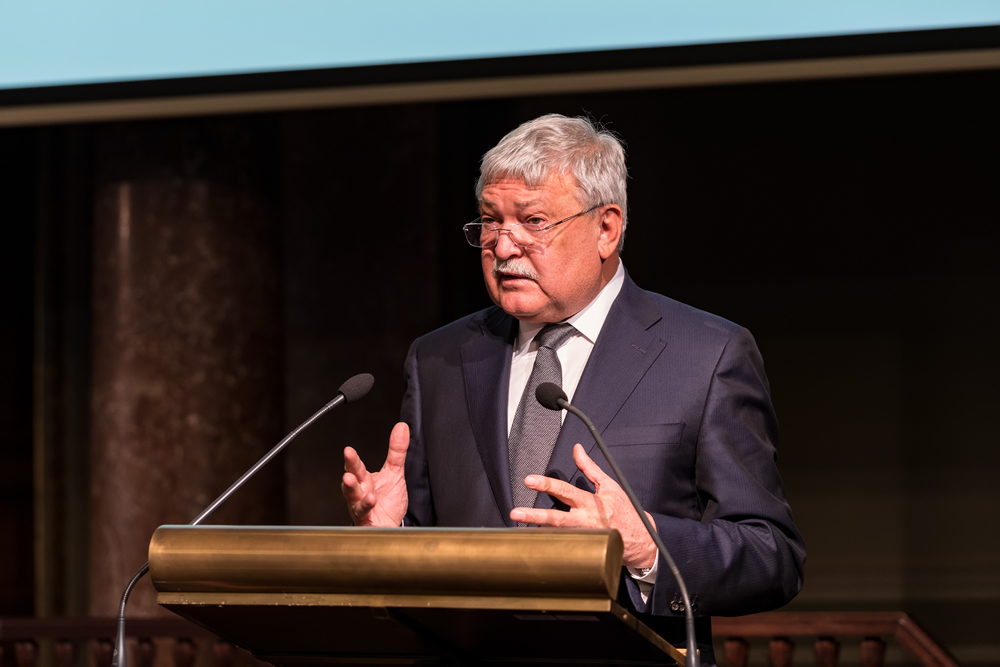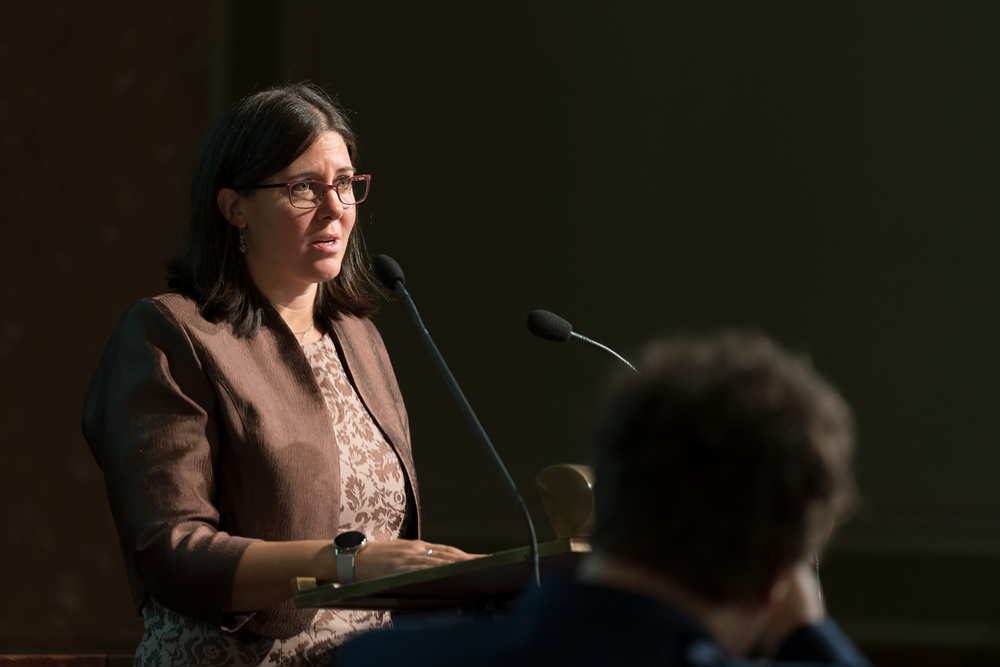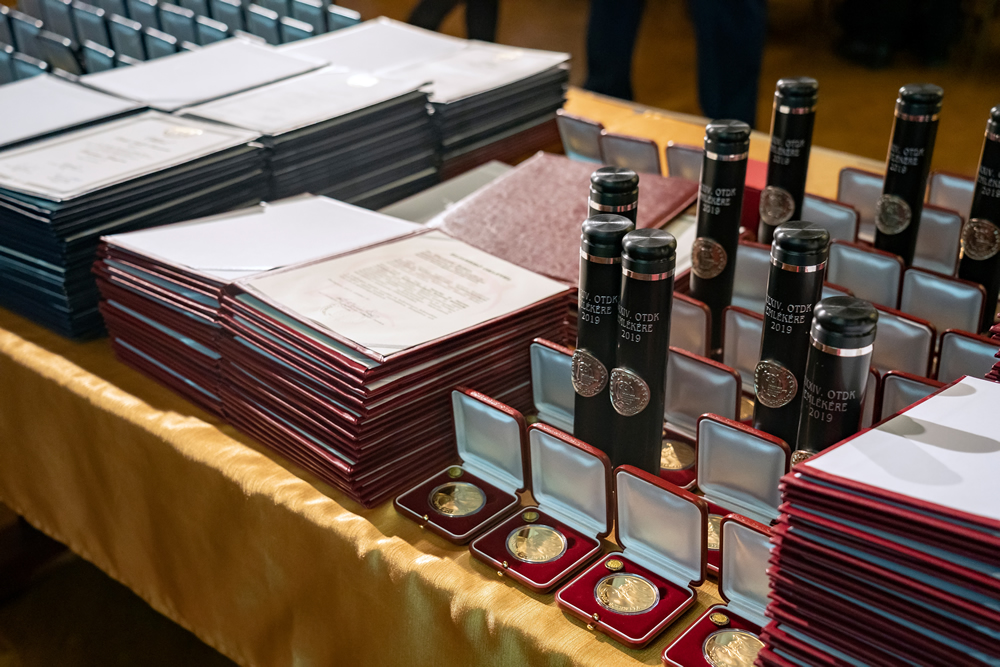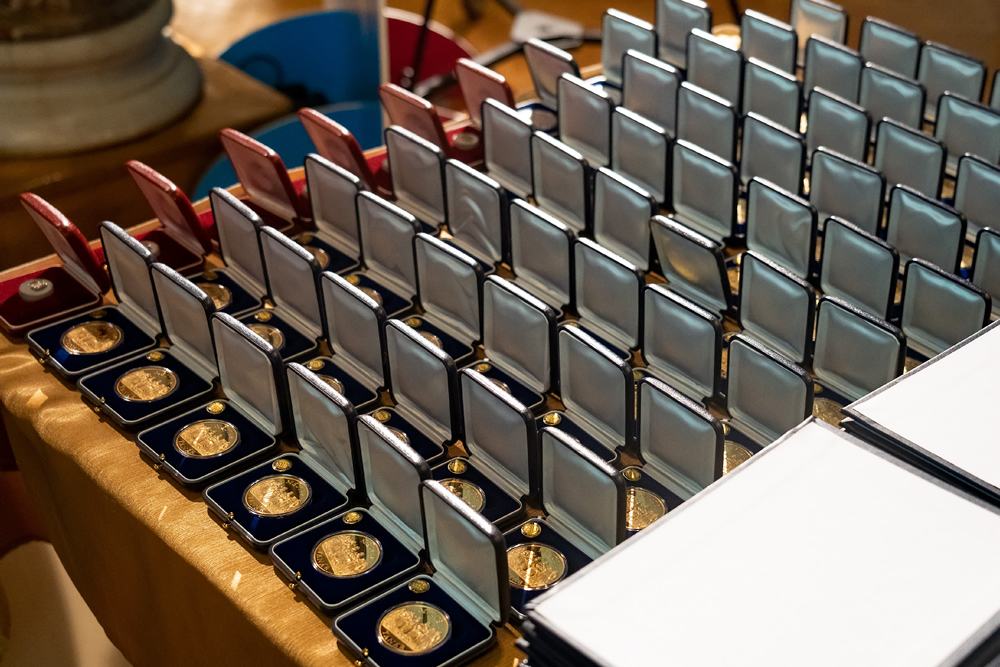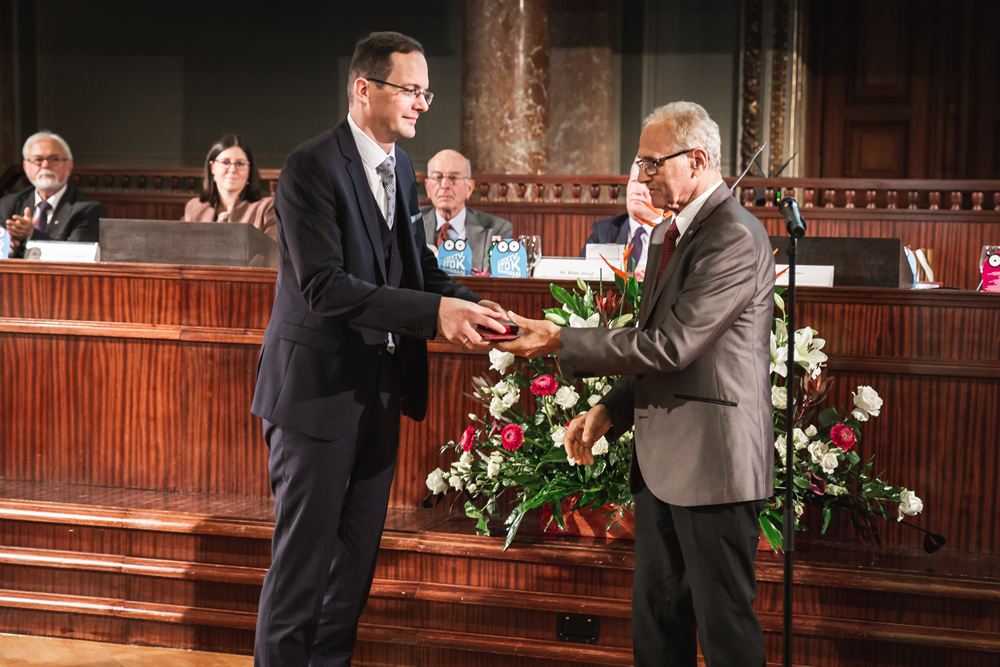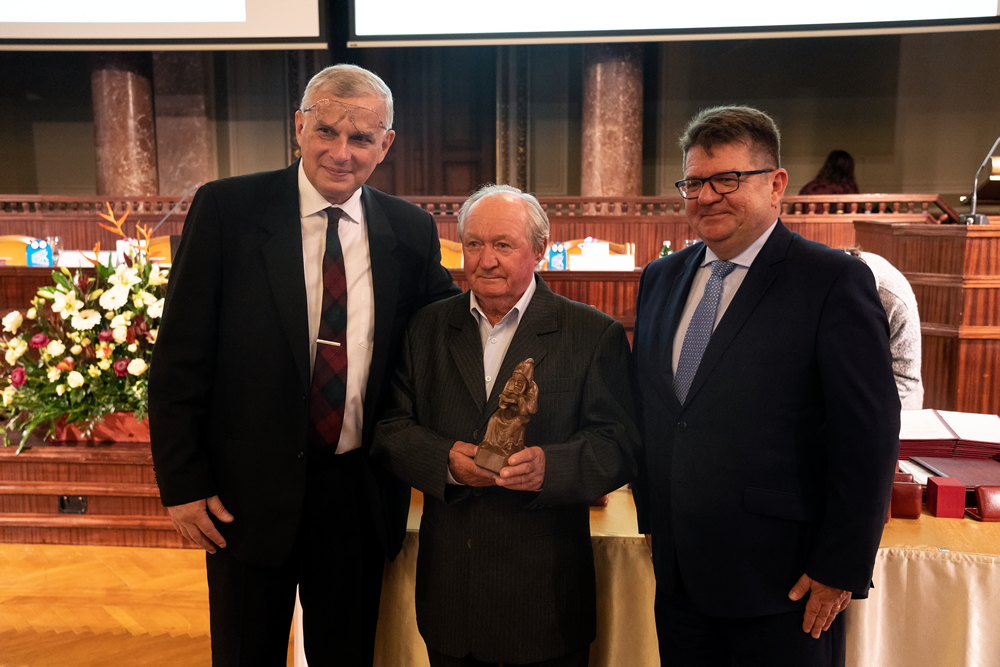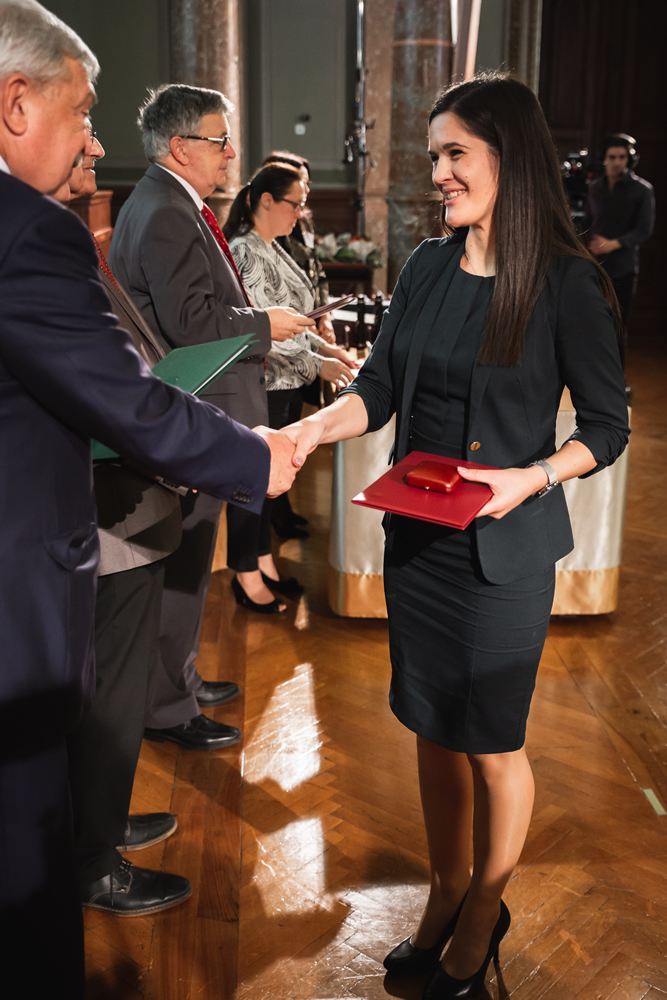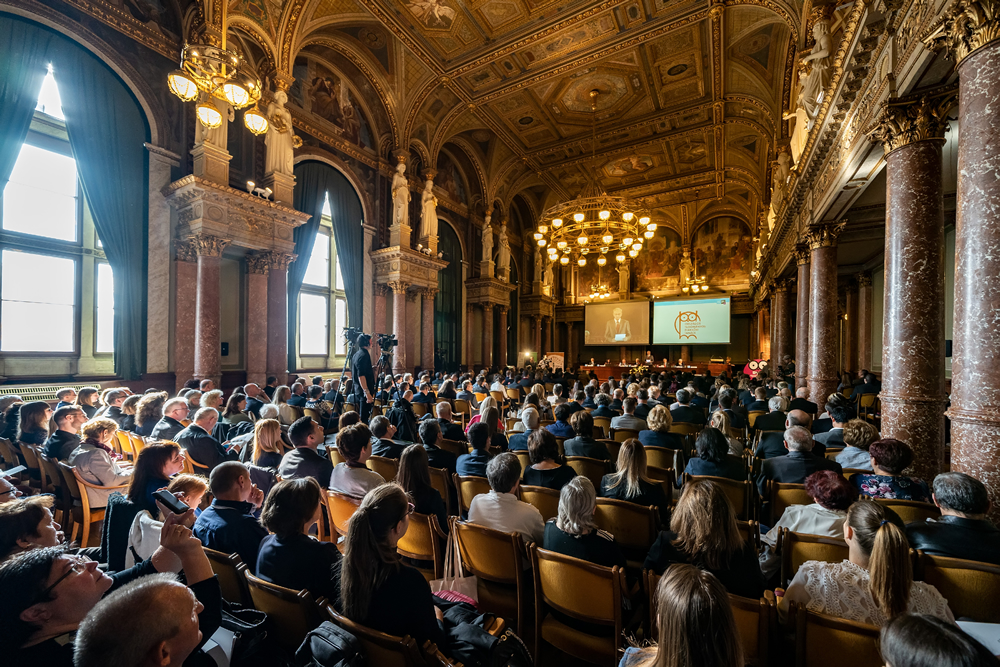Top performing young students of the National Conference of Scientific Students Associations (OTDK) received prestigious prizes in recognition of their scientific achievements today in the building of the Hungarian Academy of Sciences. Organised for the 34th time by the National Scientific Student Council, under the patronage of the Ministry of Human Resources and the Hungarian Academy of Sciences, and sponsored by the Ministry for Innovation and Technology and the National Research, Development and Innovation Office, this year’s OTDK conference was attended by twice as many high school students as in the past years, and the Pro Scientia Gold Medal was awarded again in the Junior category after a decade. More than 4000 applications were presented in the series of events, but ultimately only 51 applicants received the Gold Medal, 58 teachers and researchers were honoured with the Master Teacher Gold Medal for their OTDK supporting activity, and other special prizes and professional recognitions were also awarded.
OTDK has been the most prestigious scientific event in Hungary for over six decades, providing an opportunity for creative young people to present their work to a high profile audience with the aim of recognising the achievements of talented higher education students, strengthening and supporting student-teacher collaboration, and providing national publicity to and showing appreciation for the scientific activity of students. Young people delivering outstanding performance in scientific student associations and throughout their student career are credited for their efforts every two years by the National Scientific Student Council (OTDT). The most prestigious award for students is the Pro Scientia Gold Medal.
Altogether 4118 applications were submitted this year to the 34th OTDK, and 488 applicants were awarded the first place, qualifying them to run for the Pro Scientia Gold Medal. Out of the 313 Pro Scientia applicants 51 young talents received the gold medal. 48 students were awarded the Pro Scientia Gold Medal, two students the Pro Arte Gold Medal for their artistic performance, and one high school student the Junior Pro Scientia Gold Medal. Prof. Dr. Péter Szendrő, President of the OTDT pointed out: “More than 4000 young Hungarian individuals felt ready to enter the OTDK contest, and the most outstanding of them, altogether 51 persons have been awarded now. We are especially pleased that after a decade we could award the Pro Scientia gold medal in the Junior category, namely to Tamás Veres.
As a remarkable result this year, the number of applicants from high schools has doubled compared to the previous call in 2017, which clearly suggests that there is a way to increase the interest of young generations in a scientific career. Dr. István Szabó, Deputy President of the NRDI Office highlighted: “It is a priority objective in the reform of the Hungarian innovation environment to kindle interest in science and inspire the next generations to take up a scientific career, in which successful OTDK participation is an important milestone. This year, the number of applications from high schools has doubled, which is a promising trend that encourages us to put even more effort in discovering and motivating young talents.”
The OTDT Presidency also awarded the OTDT Gold Badge for the successful efforts in supporting scientific student associations: this year’s awardees were Lajos Aáry-Tamás, honorary associate professor, commissioner for educational rights; Tibor Gulyás, deputy state secretary for innovation, former president of the National Union of Students in Hungary; Zita Horváth, professor, deputy state secretary for higher education; Gábor Németh, deputy president of the Hungarian Intellectual Property Office; and Dr. István Szabó, deputy president for innovation and general affairs of the NRDI Office.
The 2019 Almanac provides a complete list of awardees, as well as the recipients of the Master Teacher Gold Medal (and its legal predecessors) who have greatly contributed to the work of scientific student associations and, as a result, to the entire Hungarian higher education in the last three decades.
Budapest, 31 October 2019







